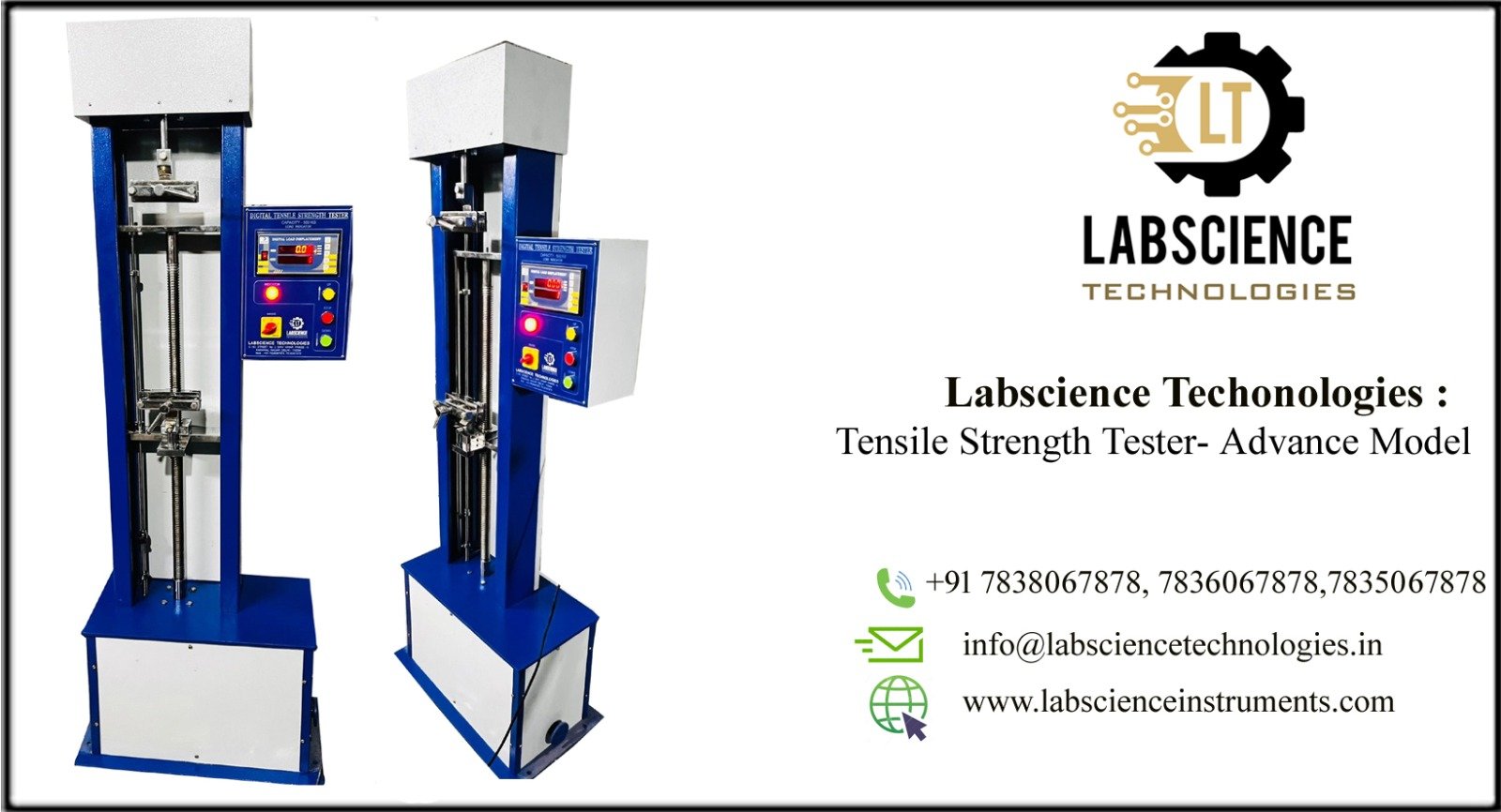Choosing the Right Tensile Tester for Your Needs
Choosing the Right Tensile Tester for Your Needs
Understanding the requirements for selecting a tensile tester is crucial for achieving accurate material testing results. Whether you work in quality control, research, or production, the right tensile tester ensures precise measurements, durability, and compliance with industry standards.
What is a Tensile Tester?
A tensile tester, also known as a universal testing machine, measures the tensile strength of materials. This process involves pulling a sample to assess its breaking point, elasticity, and deformation properties.
Key Functions of a Tensile Tester
- Measuring tensile strength
- Evaluating elongation and yield strength
- Analyzing material deformation
- Testing adhesion and peel strength
Why Choosing the Right Tensile Tester Matters
The selection of a tensile tester impacts the accuracy and reliability of material testing. Different applications and industries require specific configurations and capabilities.
Applications of Tensile Testers
- Construction Materials: Testing the strength of concrete, steel, and composites.
- Automotive Industry: Assessing the durability of metal and plastic parts.
- Packaging: Ensuring seal integrity and material flexibility.
- Textile and Fabric: Measuring stretchability and durability.
Factors to Consider When Choosing a Tensile Tester
When selecting the ideal tensile tester, consider the following factors to ensure it meets your operational needs.
1. Type of Material
Identify the materials you will be testing, such as metals, plastics, textiles, or composites. Specific machines cater to different material properties.
2. Load Capacity
Choose a tensile tester with an appropriate load range for your testing requirements. Small-scale materials may need low-capacity testers, while industrial materials require high-capacity machines.
3. Testing Standards
Ensure the tester complies with relevant standards such as ASTM, ISO, or DIN. Compliance guarantees accurate and industry-accepted results.
4. Automation Level
Decide between manual, semi-automatic, or fully automated tensile testers based on your efficiency and accuracy needs.
5. Software Integration
Advanced tensile testers offer software for data analysis and reporting. Look for user-friendly interfaces and compatibility with existing systems.
Types of Tensile Testers
Different tensile testers are designed to cater to specific testing requirements.
1. Universal Tensile Testers
These versatile machines handle a range of tests, from tensile and compression to flexural and peel testing.
2. Single Column Testers
Ideal for lightweight materials and lower-capacity testing, these compact machines are suited for laboratories.
3. Dual Column Testers
Designed for higher load capacities, dual-column machines are commonly used in industrial applications.
Choosing Between Single and Dual Column Machines
- Single Column: Space-saving, cost-effective, lower capacity.
- Dual Column: Higher capacity, robust, suited for heavy materials.
Common Mistakes to Avoid
Selecting the wrong tensile tester can lead to inaccurate results and unnecessary costs.
Mistake 1: Ignoring Future Needs
Consider potential future testing requirements to avoid frequent upgrades.
Mistake 2: Overlooking Calibration
Regular calibration ensures the machine remains accurate and reliable.
Mistake 3: Skipping Training
Invest in training to ensure operators utilize the machine effectively.
Benefits of Choosing the Right Tensile Tester
A well-selected tensile tester offers multiple benefits, including:
Improved Accuracy
Precise measurements ensure quality control and compliance with standards.
Enhanced Efficiency
Automated features and advanced software streamline testing processes.
Long-Term Cost Savings
Durable machines reduce maintenance costs and the need for replacements.
How to Maintain Your Tensile Tester
Proper maintenance extends the lifespan of your tensile tester and ensures consistent performance.
Routine Inspections
Regularly check for wear and tear in grips, load cells, and other components.
Software Updates
Keep software up to date to access the latest features and improvements.
Calibration Checks
Perform calibration checks periodically to maintain accuracy.
Final Thoughts on Tensile Tester Selection
Choosing the right tensile tester involves assessing your material, testing requirements, and future needs. By investing in the right equipment, you ensure precise measurements, compliance with standards, and operational efficiency.
Make the Right Choice Today
Evaluate your options carefully and consult with experts to select the tensile tester that best suits your requirements. The right choice will empower your business with reliable and accurate material testing capabilities.
Kindly fill this form to demand a call-back to from our client support boss with esteeming and details.
+91 7838067878
Call Now
+91 7838067878

